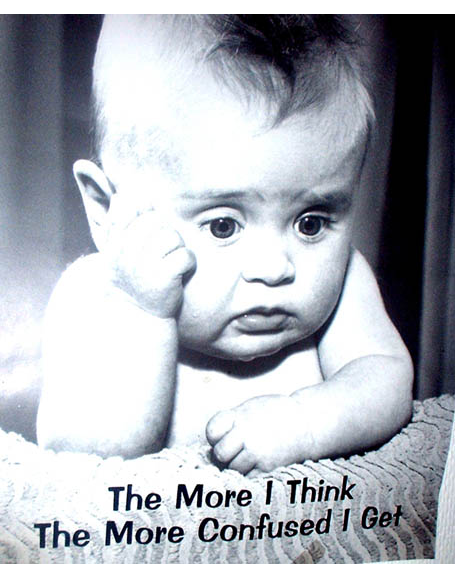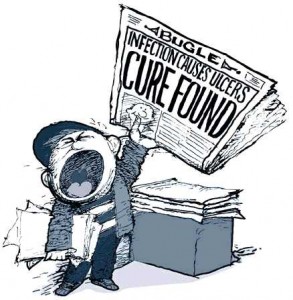When I first started to hear about Calvinism I found it both fascinating and confusing.
It raised many, many questions for me, which I slowly worked through bit by bit, with the main goal being, to understand what God thought about it in his Word.
For those that haven’t really been introduced to Calvinism, I will give you a very brief heads up.
John Calvin was a Christian guy born in 1509, who expressed his understanding of life, God and salvation in a distinct way. People who believe that his ideas are in fact Biblical and accurate, call themselves “Calvinists”. It doesn’t (usually) mean that they worship Calvin or think that everything he wrote was correct, it just means that they agree with certain concepts that he wrote about.
salvation in a distinct way. People who believe that his ideas are in fact Biblical and accurate, call themselves “Calvinists”. It doesn’t (usually) mean that they worship Calvin or think that everything he wrote was correct, it just means that they agree with certain concepts that he wrote about.
The main bone of contention is around the Sovereignty of God and the Will of Mankind.
Calvinism makes the point that people, due to their “deadness” towards God, have no ability to repent and trust in Jesus – which is the appeal of the Christian Gospel. It states that the Bible is very clear that for people to be able to respond to the Gospel, God’s Spirit must first awaken the heart of the non-Christian and that the faith that they are saved through, is a faith that is a gift from God, not something that can be mustered up or chosen. God chooses us before we can chose him.
Someone once described it to me like this.
Some think of non-Christians like people drowning in the open seas and God is offering to save them – he has the life preserver ready to throw – but he waits until he sees that hand raised in faith, before he throws it and saves the sinner from drowning. If no hand is raised, then the offer of salvation is rejected and the sinner inevitably drowns, to the great sadness and disappointment of God who was there the whole time, life preserver in hand, ready to save, if only we would respond to his free offer.
the life preserver ready to throw – but he waits until he sees that hand raised in faith, before he throws it and saves the sinner from drowning. If no hand is raised, then the offer of salvation is rejected and the sinner inevitably drowns, to the great sadness and disappointment of God who was there the whole time, life preserver in hand, ready to save, if only we would respond to his free offer.
This in itself is a beautiful and tragic picture and there is some truth in it, but Calvinism points out, it has some major flaws and ultimately is a very unbiblical picture.
The message we get from the Bible is a lot less evenly weighted. In the above picture, God is strong to save, but weak without our co-operation. And we are weak in that we need help, but strong in our ability to thwart God’s hopes and plans.
The Bible has a very different picture. We are a lot weaker and God is a lot stronger.
My friend continued explaining the analogy and put forward that the picture that Calvinism (and the Bible) presents, is more like this…
You are not at the top of the water’s surface, waving your arms around for God to save you. You are dead. At the bottom of the ocean. Stone, cold dead. No hope. No life. No chance to respond to an offer of salvation. Dead.
salvation. Dead.
God is completely sovereign over the entire salvation process. He does not sit there on the rescue boat crossing his fingers and hoping that you’ll respond. You can’t respond. God knows this because he caused this to happen. Our deadness to God is part of God’s curse on the world for it’s rejection of him.
Now, God could very rightly and justly leave us dead and without hope, for that is what we deserve, but for some amazing reason, wrapped up in his amazing love and generosity and his desire to show his glory to the Universe, he does not leave us dead at the bottom of the ocean.
God chooses, or elects, some people to come alive. He brings them to the surface of the ocean and there he holds out his hand, which the newly alive person naturally and irresistibly grabs with whatever faith they now have, and so they are plucked out of the water and brought from death to life.
From the beginning to the end God is sovereign as no dead person can make themselves alive, and although there still is an offer and an acceptance, it is one that is irresistible and one has been made completely possible by the will of God from beginning to end. This is Calvinism.
Now, there are Bible verses here and there that people use to argue against Calvinism, but I believe they don’t actually contradict Calvinism, but just deepen our understanding and picture of the Sovereignty of God and what it looks like from a human perspective. There are far more verses and passages that explicitly support Calvinism and although I know it’s a bit biased, I’ll list some of these verses. (If you want me to blog further on the arguments for and against Calvinism, please write a comment asking for it!)
“No one can come to me unless the Father who sent me draws him.” – John 6:44
“When you were dead in your sins and in the uncircumcision of your sinful nature, God made you alive with Christ.” – Colossians 2:13
“As for you, you were dead in your transgressions and sins, in which you used to live when you followed the ways of this world and of the ruler of the kingdom of the air, the spirit who is now at work in those who are disobedient. All of us also lived among them at one time, gratifying the cravings of our sinful nature and following its desires and thoughts. Like the rest, we were by nature objects of wrath. But because of his great love for us, God, who is rich in mercy, made us alive with Christ even when we were dead in transgressions—it is by grace you have been saved. And God raised us up with Christ and seated us with him in the heavenly realms in Christ Jesus, in order that in the coming ages he might show the incomparable riches of his grace, expressed in his kindness to us in Christ Jesus. For it is by grace you have been saved, through faith—and this not from yourselves, it is the gift of God— not by works, so that no one can boast.” – Ephesians 2:1-9
“Yet, before the twins [Jacob and Esau] were born or had done anything good or bad—in order that God’s purpose in election might stand: not by works but by him who calls—she was told, ‘The older will serve the younger.’ Just as it is written: ‘Jacob I loved, but Esau I hated.’ What then shall we say? Is God unjust? Not at all! For he says to Moses, ‘I will have mercy on whom I have mercy, and I will have compassion on whom I have compassion.’ It does not, therefore, depend on man’s desire or effort, but on God’s mercy. For the Scripture says to Pharaoh: ‘I raised you up for this very purpose, that I might display my power in you and that my name might be proclaimed in all the earth.’ Therefore God has mercy on whom he wants to have mercy, and he hardens whom he wants to harden.” – Romans 9:11-18
“When the Gentiles heard this, they were glad and honored the word of the Lord; and all who were appointed for eternal life believed.” – Acts 13:48
“For he chose us in him before the creation of the world to be holy and blameless in his sight. In love he predestined us to be adopted as his sons through Jesus Christ, in accordance with his pleasure and will— to the praise of his glorious grace, which he has freely given us in the One he loves... In him we were also chosen, having been predestined according to the plan of him who works out everything in conformity with the purpose of his will, in order that we, who were the first to hope in Christ, might be for the praise of his glory.” – Ephesians 1:4-6, 11-12
Now, if you’re new to these ideas, you are probably asking the same questions I did when I first started to grasp it, like: “If people can’t save themselves and it’s God who choses who will be saved and who won’t, then why doesn’t God simply just save everyone??”
It’s a valid question, and one that I won’t actually answer in depth here (Sorry! Again, write a comment and ask me to if you want) other than to say that the Bible is clear that not everyone gets to heaven. The question is, who’s ultimately in charge? If we’re free to chose whether or not we go to heaven, why doesn’t God just set up the circumstances so that we chose him? This makes God out to be very weak, very quiet and not very beautiful, as people seemingly of their own free will, pass him over and reject him.
Calvinism paints a glorious picture of God. A God that rules all things, including the ultimate destiny of every soul. A God that is so wonderful and desirable that if you are granted the gift of spiritual life and sight, you can’t help but put your faith in him.
All people, by God’s just and holy determination in response to our sinfulness, are destined for hell, and it only by his free act of merciful choice, that he plucks some of us out in order that we may enjoy him forever.
Why he does not chose to save us all, I do not know. God could rightly send us all to hell, and God could also rightly (thanks to Jesus) save us all from hell. It must be that God, who always does what is best, knows that in the end, it is better that he saves some rather than all. It seems unfair initially, but we must always remember that it is never unfair for God to send a sinner to hell. If I was going to hell, I couldn’t say to God that it was unfair that he was not merciful to me, because mercy itself is not fair. Judgement is fair, and God may at his own will and for his own reasons, decide to have mercy on whom he wants to have mercy (Romans 9:18). Jesus told a great parable explaining this very point in Matthew 20:1-16.
Now, I know I haven’t answered all the questions you may have on that topic, but I want now to turn your attention to the actual main point of this blog (yes, that’s right, that was all just introduction!)
The second big question I began asking as I started wrapping my head around Calvinism and the Biblical picture of salvation, was this one:
 “If it’s God that saves people from beginning to end, what’s the point of evangelism??”
“If it’s God that saves people from beginning to end, what’s the point of evangelism??”
That was a big problem for me. I loved sharing my faith and I believed that people only needed the gospel explained in a way that was clear and compelling and they would happily choose it. But these new ideas were telling me that no matter WHAT I did and no matter WHAT I said, dead people don’t respond to the gospel and if God hadn’t chosen them then my evangelism would do as much good as preaching in a mortuary.
Also, it meant that if God HAD chosen them, then they would be saved whether I shared the gospel or not. Maybe I wouldn’t get to see them come to faith, but somehow, some way, the God that had chosen them before the creation of the world (Ephesians 1:4) would make it happen.
So what was the point of evangelism?? If God’s completely sovereign, doesn’t that make evangelism superfluous? Can’t I just leave the whole evangelism thing up to God and save myself all those awkward and painful conversations? Why does God ask us to teach and preach and proclaim and appeal and call people to repentance and faith, if their response is totally at the whim of a Sovereign God?
Well, if those questions are rattling around in your head, then know that I understand. I have been thinking about it on and off for many years, and just recently I have come to an understanding that I have found very encouraging. It has filled me with great wonder and joy in our Sovereign God and has spurred me on to both be prayerfully dependent on God to act and bring people to life, as well as at the same time, given me a purpose and boldness in my evangelism that has led me to be more active than I have been in a long while.
Sorry to leave you in suspense, but I think I might leave this here for tonight, and fill you in on my insights as soon as I can.
Read part 2. Click here!
Please leave me comments and questions!
(3763)





















